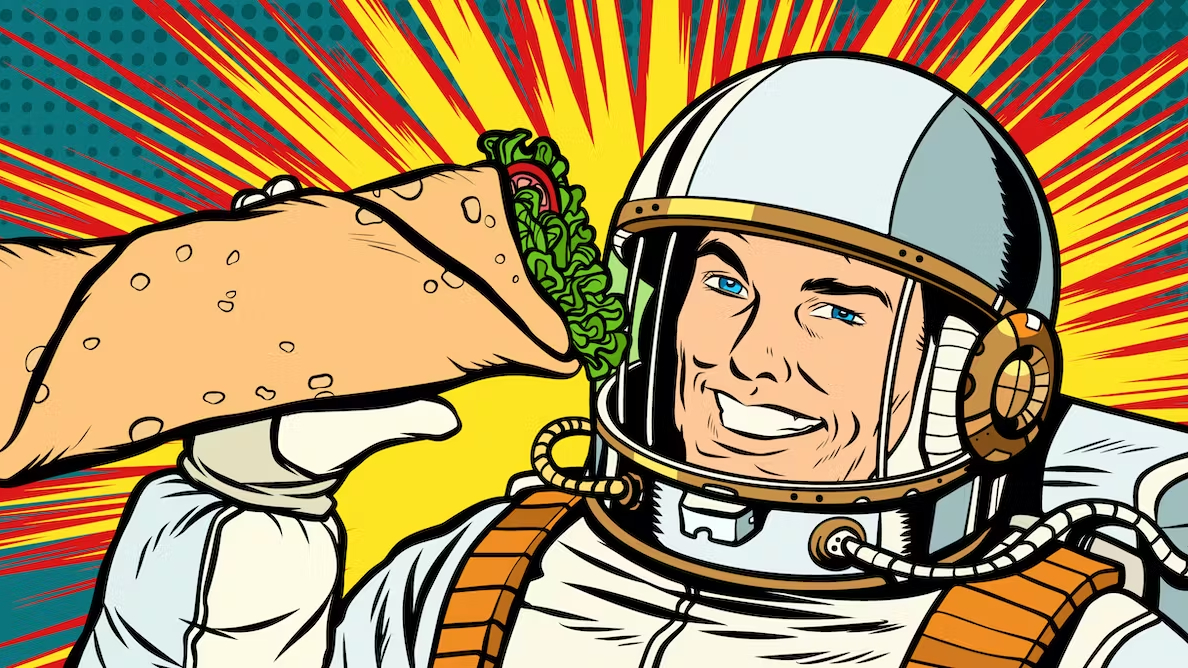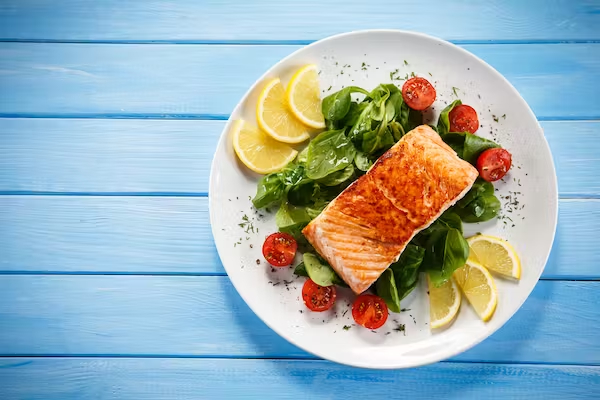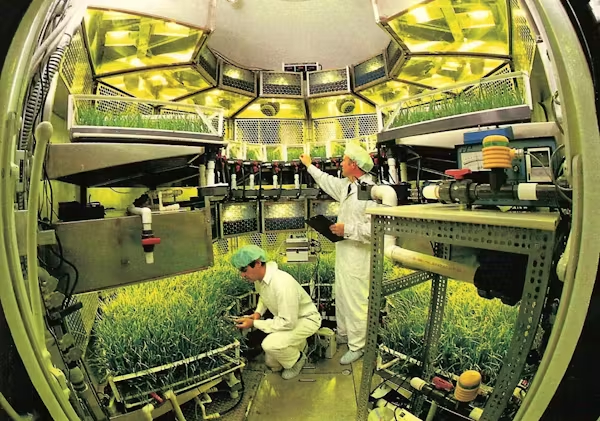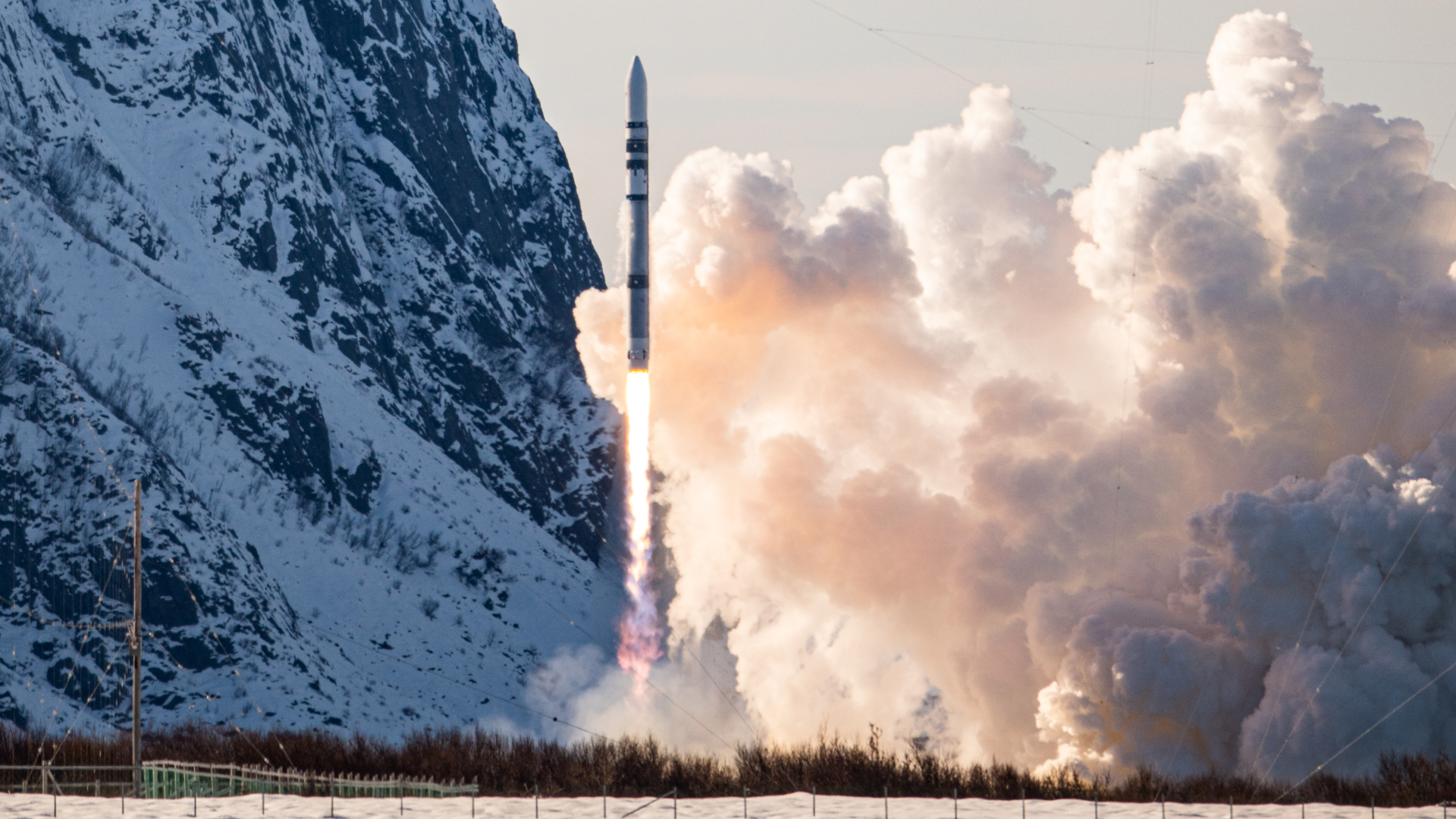
Space travel taxes astronauts' brains. But microbes on the menu could help in unexpected ways
Feeding astronauts on a long mission to Mars goes well beyond ensuring they have enough nutrients and calories to survive their multi-year journey.

This article was originally published at The Conversation. The publication contributed the article to Space.com's Expert Voices: Op-Ed & Insights.
Felice Jacka is the founder and director of the Food & Mood Centre at Deakin University and the founder of the International Society for Nutritional Psychiatry Research (ISNPR).
Dorit Donoviel is Executive Director, NASA-Funded Translational (moving products from lab-bench to practice) Research Institute for Space Health at Baylor College of Medicine.
Feeding astronauts on a long mission to Mars goes well beyond ensuring they have enough nutrients and calories to survive their multi-year journey.
Providing astronauts with the right diet is also paramount in supporting their mental and cognitive health, in a way unlike previous missions.
So we need to radically rethink how we feed astronauts not only on a challenging mission to Mars, which could be on the cards in the late 2030s or early 2040s, but to prepare for possible settlement on the red planet.
Related: What will astronauts on deep space missions eat? 'Neurogastronomy' may have the answer.
Breaking space news, the latest updates on rocket launches, skywatching events and more!
That includes acknowledging the role of microbes in mental health and wellbeing, and providing astronauts with the right foods and conditions for a variety of these beneficial microbes to grow. Our research aims to do just that.
Here's why a healthy balance of microbes is important under such challenging conditions, and how we could put microbes on the menu.
Why are missions to Mars so challenging?
Deep space missions will expose humans to immense physical and psychological challenges. These include prolonged isolation from loved ones, extreme space and resource constraints, and the difficulties of microgravity.
Disruption to astronauts’ circadian rhythms, prolonged radiation exposure and dietary changes can also lower their cognitive performance and wellbeing.
The hazardous conditions, combined with the psychological toll of potential spacecraft failures, can all contribute to mental health problems.
Why is diet important for mental health?
We already know the quality of people’s diet not only influences their physical health, but also their mental and brain health.
Diet quality is consistently and independently linked to the risk of depression or anxiety. Clinical trials show improving diet quality can lead to profound improvements in depression and anxiety symptoms.
Diet also affects the size and function of a specific brain region – the hippocampus – that is crucial to learning and memory, as well as for maintaining mental health. When even young healthy adults eat "junk" foods, aspects of cognition linked to the hippocampus quickly decline.
On the other hand, research shows a diet containing more and varied plant foods and seafood (which are rich in components called long-chain omega-3 fatty acids and flavonoids) leads to better cognitive performance. This study was conducted in a closed chamber for 45 days, designed to mimic conditions in space.
Diet can have such consequences by altering:
- Immune function
- The size and functioning of the hippocampus
- Chemical messenger (neurotransmitter) systems
- How our bodies respond to stress.
Diet can also influence the many ways microbes in the gut affect the brain, a link known as the microbiota gut-brain axis.
Not all foods make the grade
Space foods need to appeal to a diverse crew and stay nutritious for an extremely long time (likely a three- to five-year mission). They also need to be lightweight and compact enough to fit on the spacecraft.
Once on Mars, challenges include growing fresh food and culturing protein sources. Beyond providing nutrients, we also need to consider providing more recently identified factors including phytonutrients (such as polyphenols), fermentation products and microbes. These will likely be crucial to sustain health and, indeed, life on deep space missions.
Why are microbes so important?
If you’ve seen the film The Martian, you’ll know microbes are a crucial aspect of growing food, and are essential for keeping humans alive and functioning.
We have co-evolved with, and are hosts to, trillions of different microbes that live on our skin and in all our niches and cavities. This includes our mouths, nose, vagina, lungs and – crucially – our gut.
Most of these microbes are bacteria. The largest number are in the gut, where they influence our digestion, metabolism, and immune, endocrine (hormone) and nervous systems.
The relationship between gut microbes and mental health and behavior goes both ways. Gut microbes influence our mental health and behavior, and these, in turn, influence our gut microbes.
Other components of our microbiomes – viruses, fungi and even parasites – and the oral and lung microbiome are also linked to mental and brain health.
Importantly, we share microbes with others, including via the exchange of air, which is highly relevant in closed-environment systems such as inside spacecrafts.
So ensuring all astronauts have the healthiest and most diverse of microbes for the whole of the mission is vital.
Fermented protein from microbes can be quickly produced in a bioreactor on board the spacecraft, even from food waste. Some types have a meat-like flavor and texture, and can provide all the amino acids humans need as well as useful byproducts from the microbes themselves.
Fermentation itself creates thousands of different bioactive molecules, including some vitamins, that have diverse beneficial effects on health, including possible benefits to mental health.
While we don’t yet know what types of fermented foods are possible in space, we could include fermented foods, such as kimchi and sauerkraut, in astronauts’ diets on Earth.
Probiotics and prebiotics as supplements may also be essential. Probiotics are live microbes that have demonstrated health benefits and prebiotics are food for these healthy microbes.
Benefits on Earth too
We’re only at the start of learning how to optimize microbes to keep space crews healthy, which is crucial for long space flights and for possible settlement on other planets.
However, this research could have many other applications. We can use what we learn to help create self-sustaining and sustainable food systems on Earth to improve the environment and human health.

Alfred Deakin Professor Felice Jacka OAM is the founder and director of the Food & Mood Centre at Deakin University and the founder of the International Society for Nutritional Psychiatry Research (ISNPR). She has led the establishment of the field of Nutritional Psychiatry, which investigates the potential of diet and nutrition in the prevention and treatment of mental and brain disorders.



